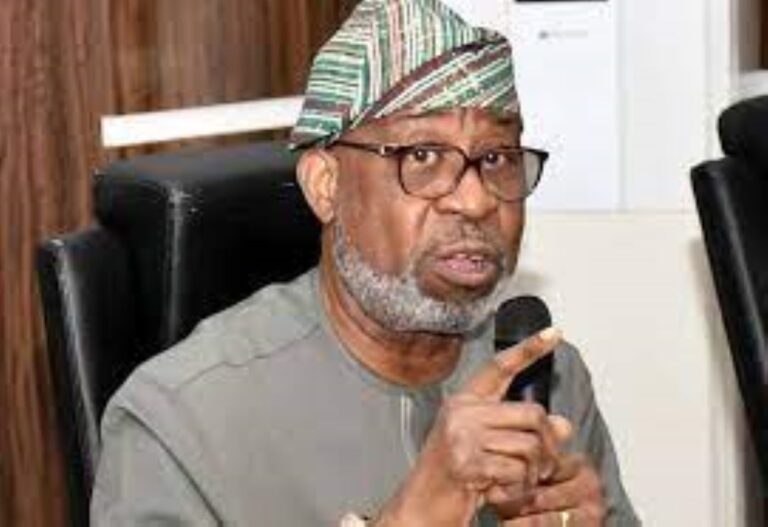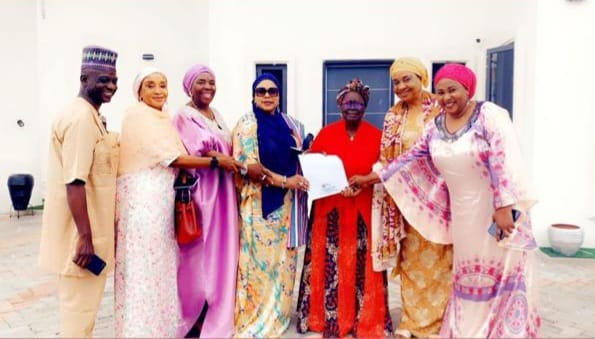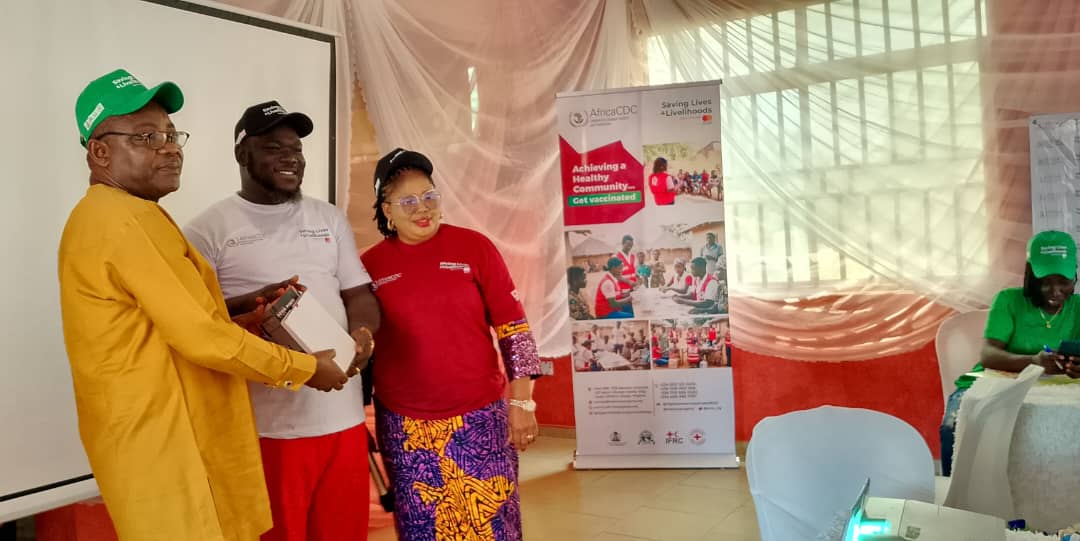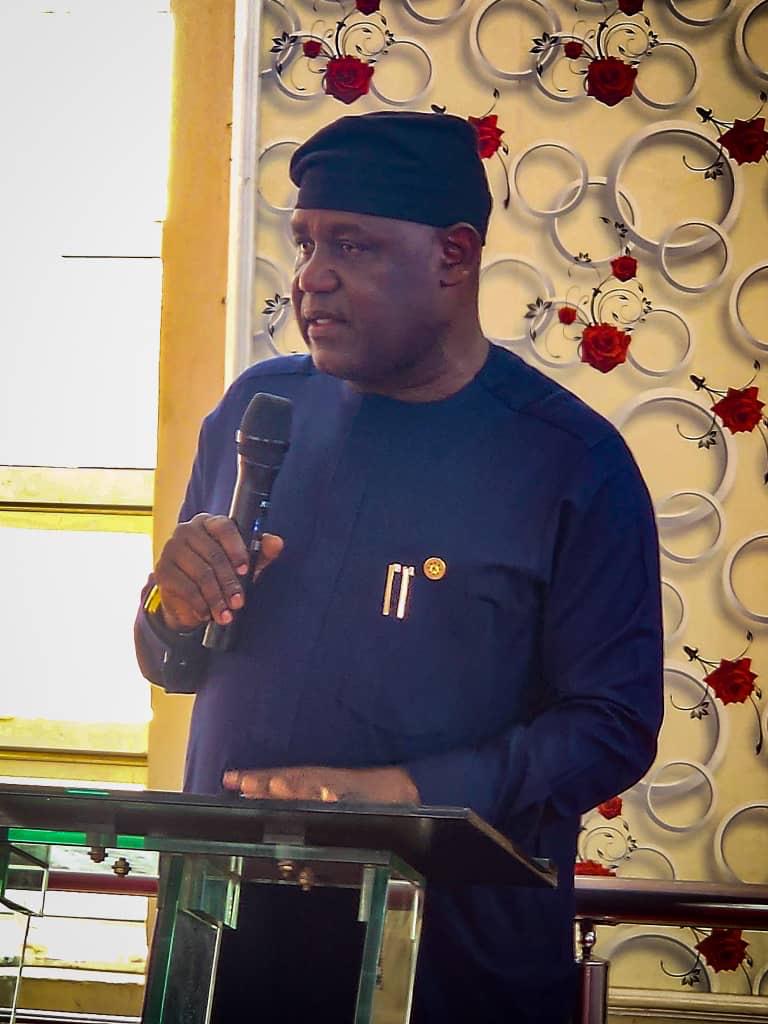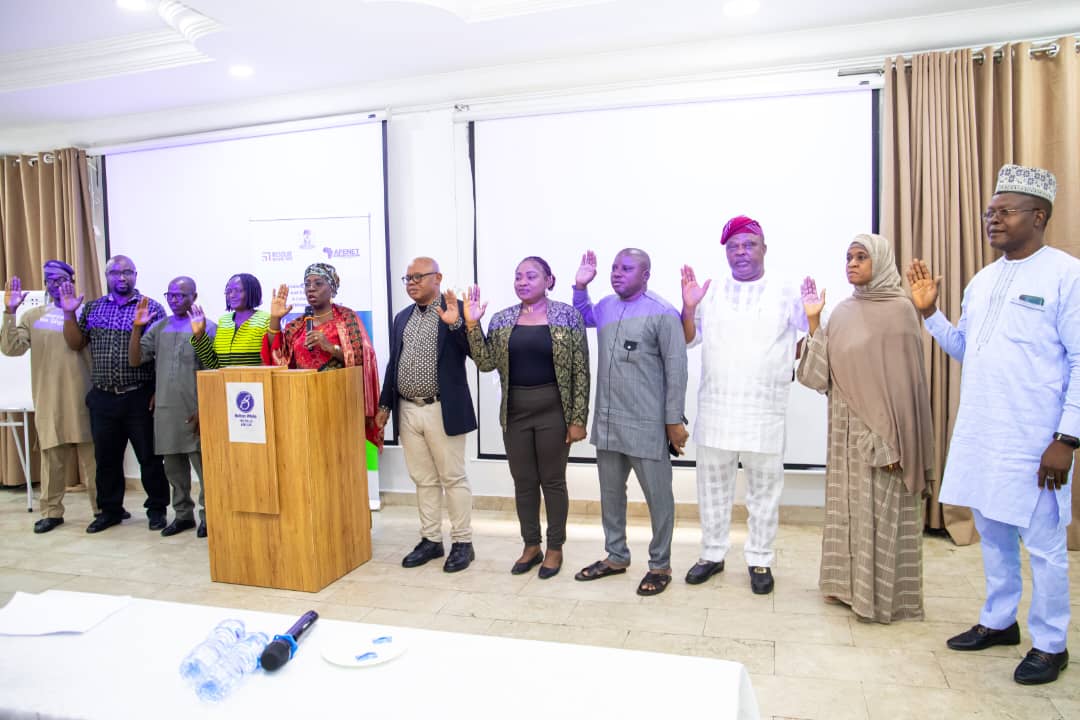
By Fatima Saka
The Federal Government has taken a decisive step in tackling one of Nigeria’s most overlooked but deadly public health crises, lead poisoning by inaugurating the National Interagency Working Group on Lead Poisoning Elimination and unveiling a Five-Year National Strategic Plan.
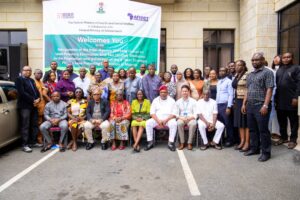
This was made known on Monday at a two-day workshop in Abuja, marking what health officials describe as a “historic milestone” in the country’s efforts to protect vulnerable populations, particularly children, from the devastating effects of lead contamination.
Coordinating Minister of Health and Social Welfare, Professor Muhammad Ali Pate, represented by the Permanent Secretary, Daju Kachollom, through Mrs. Ladidi Bako-Aiyegbusi, Director of the Health Nutrition Department, said the initiative reflects the government’s renewed commitment to environmental health and disease prevention.
He warned that lead poisoning is a silent but devastating public health crisis. “Lead poisoning is not just an environmental hazard, it is a public health crisis that robs our children of their future,” Pate said. “It silently erodes brain development, damages the nervous system, and causes long-term disabilities. For adults, it contributes to hypertension, kidney dysfunction, and reproductive challenges. This plan gives us a coordinated path forward.”
According to professor Pate Nigeria’s encounter with lead poisoning has been particularly tragic. In 2010, Zamfara State witnessed the world’s worst outbreak, where unsafe artisanal gold mining led to the deaths of over 400 children and sickened thousands. Another outbreak followed in Niger State in 2015, while recent cases were reported in Zamfara and Sokoto in 2024. These recurring outbreaks, experts say, underscore the urgent need for systemic interventions.
He highlighted that the Federal Ministry of Health has already made significant strides by providing laboratory equipment such as lead care machines and spectrophotometer, supporting treatment with chelation therapy in partnership with Médecins Sans Frontières (MSF), enhancing surveillance, and carrying out soil remediation and public education. But the new five-year plan goes further by providing a roadmap for prevention, treatment, policy enforcement, and community engagement.
“The National Interagency Working Group will serve as the central platform to harmonize strategies across ministries, agencies, and international partners. Its mandate includes assessing the extent of lead exposure, strengthening laboratory testing capacity, reviewing regulatory frameworks, and mobilizing sustainable financing,” he emphasized.
The Federal Government emphasized that the fight against lead poisoning requires the involvement of multiple ministries, including Environment, Mines and Steel Development, Agriculture, and Water Resources, as well as civil society, academia, and international partners such as UNICEF, WHO, Resolve to Save Lives, and MSF. “Our collective priority is prevention, ensuring that our environment, crops, homes, workplaces, and water sources are free from contamination,” Pate declared. “The lives and future of millions of Nigerian children depend on our actions today.”
Adegbite Olufumilola, Director at the Epidemiology Division of the Department of Public Health and National Coordinator of the Lead Elimination Programme, stressed that children remain the most at risk.
She explained that they are often exposed through play in contaminated soil, hand-to-mouth activity, and unsafe mining practices that bring lead dust into homes. “The impact is irreversible, mental retardation, behavioral disorders, and in severe cases, death. We must protect them,” she said.
Olufumilola highlighted that lead poisoning in Nigeria stems from multiple sources beyond mining, including paint, battery recycling, toys, cosmetics, food, and even spices such as turmeric.
She emphasized that after the validation of the strategy, the documents will be launched and implemented with strong collaboration between federal and state governments, regulatory agencies, and international partners.
Olufumilola warned, however, that many communities return to unsafe artisanal mining after remediation because they lack alternative livelihoods. “This is why community mobilization is central to the plan. We are engaging traditional rulers, religious leaders, women, and youth groups to raise awareness of safer practices, such as wet mining methods, and to promote alternative sources of income,” she said.
She further emphasized the critical enforcement role of regulatory agencies like NAFDAC, NESREA, and the Standards Organisation of Nigeria in monitoring lead in soil, water, food, and paints. On diagnostic challenges, she acknowledged that only a few facilities currently offer blood lead testing. The Ministry, she said, is working with teaching hospitals, universities, and partners to expand diagnostic access nationwide.
“With stronger collaboration, awareness, and enforcement, lead elimination in Nigeria is achievable,” Olufumilola affirmed.
Chief Consultant Epidemiologist, Dr. Ganiyu Jamil, described the new working group as “a game-changer,” providing a multi-sectoral platform to coordinate interventions.
He warned of Nigeria’s limited diagnostic capacity, noting that only a handful of facilities conduct blood lead testing. With support from Resolve to Save Lives, the Ministry is working to establish at least four designated laboratories to generate reliable surveillance data. “The damage is long-term and irreversible. Prevention is our best weapon,” he said.
Dr. Jamil disclosed that lead contamination has spread beyond mining communities to food and livestock. He revealed that watermelons, vegetables, and even goats and horses in parts of northwestern Nigeria have tested positive for lead absorption. “This is a serious national challenge. We must ensure that what reaches Nigerians’ tables is safe for consumption. It is not just a mining issue, it is about the safety of our food and environment,” he said.
Wild Africa urges protection of Nigeria’s remaining 100 Cross River Gorillas
Dr. Jamil echoed the urgency, adding: “Some children suffer lifelong disabilities; others lose their lives. We cannot allow this silent killer to continue robbing us of our future. That is why the Honourable Minister has made this initiative a priority.”
The Abuja workshop is expected to finalize and validate Nigeria’s Five-Year Strategic Plan, after which a cost action plan will be rolled out. Despite challenges such as high treatment costs, limited diagnostic facilities, and entrenched artisanal practices, health officials remain optimistic.

